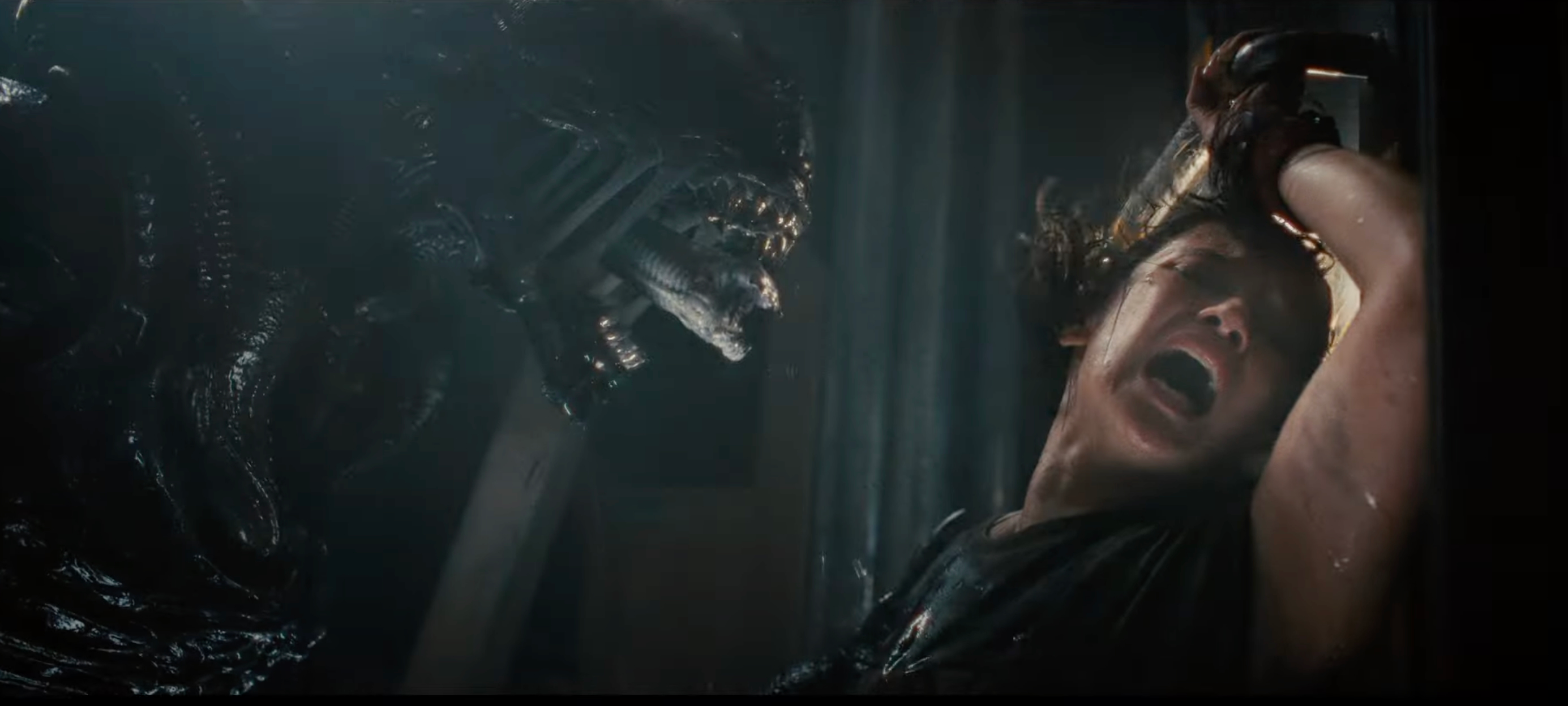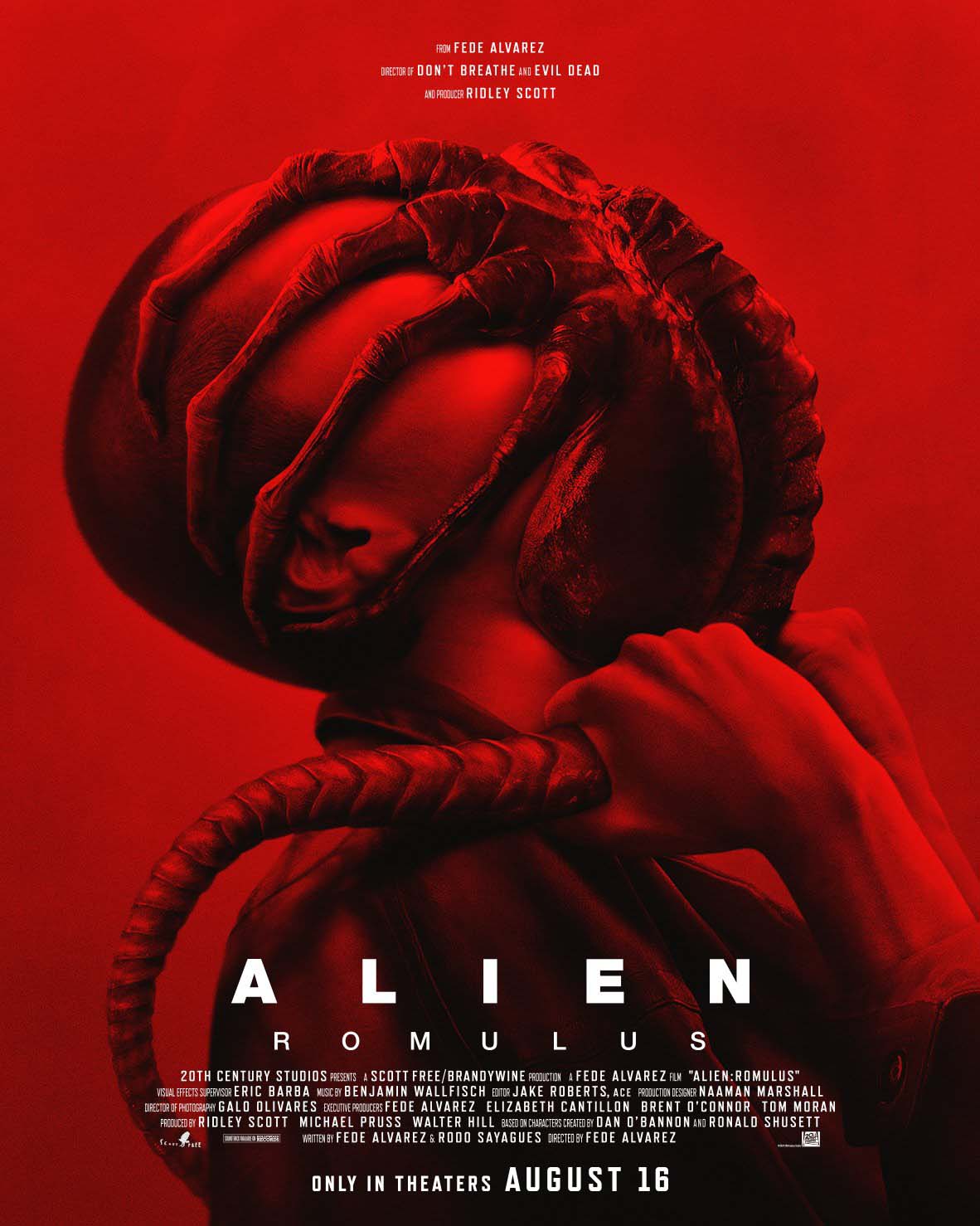‘Alien: Romulus’ Review: In Space, Capitalism Still Destroys Your Dreams

The Alien franchise is precious to many across generations. For decades, fans have fallen in love with Sigourney Weaver’s Ripley, the oozing xenomorph, and the not-so-subtle metaphors about pregnancy and birth. Each new installment has been its own brand of chaos; daring, but not always successful, entries that make up a rollercoaster of a franchise. Now, with Alien: Romulus, the seventh film in the series, writer and director Fede Alvarez is entering the pantheon of phallic extraterrestrials. His take, boasting a strong cast, a plethora of tense set pieces, and a herd of facehuggers, is a damn scary movie that unfortunately suffers from an overstuffed script too tethered to the franchise’s past.
Rain (Cailee Spaeny) is a young woman living on a Weyland-Yutani mining colony with Andy (David Jonsson), a synthetic human who she calls her brother. She’s finally worked enough hours to leave the colony and travel to a star system far from the dangerous mines that claimed the lives of her parents. But when her travel permit is denied, Rain doesn’t know what to do.
Also Read: ‘Trap’ Review: Josh Hartnett Steals The Show In Latest M. Night Shyamalan Thriller
That is, until she gets a message from Tyler (Archie Renaux) to come to meet up with him and the rest of her old crew: Kay (Isabela Merced), Navarro (Aileen Wu), and Bjorn (Spike Fearn). They’ve detected an abandoned Weyland-Yutani vessel in orbit which contains the crypopods necessary to travel far away from this desolate colony. They can actually have control over their lives instead of being pieces of capital in the corporate machine that can only leave when granted permission. But of course, their valiant grasps at freedom are shattered as they discover what lurks in the shadows of the abandoned research vessels.

While on the surface, the Alien films seem to be all about the creature, it’s really a series about labor, workers’ rights, and the destructive power of capitalism. And Alien: Romulus is no exception, with Alvarez and co-writer Rodo Sayagues placing that discussion front and center at the film’s beginning. With a young cast of characters, all of whom have suffered loss due to Weyland-Utani, the film hits particularly hard for younger generations feeding themselves to that machine on a daily basis (myself included).
Also Read: ‘Hell Hole’ Unearths Eco-Punk Body Horror Mayhem [Fantasia 2024 Review]
Each performance conveys their collective desperation for something more than withering away in the mines. Spaeny’s eyes constantly flash with a terrified desperation to simply survive, whether it’s on colony or facing off with a xenomorph. She’s essentially being molded into our generation’s Ripley, which is successful to a certain degree. Alien: Romulus is the most confronting entry in the franchise, which is impressive considering the company that owns 20th Century Studios. There is a certain irony to a film screaming about the hells of capitalism and billionaires being released by a company trying to throw out a wrongful death lawsuit via a free trial of Disney+, but that’s another piece for another time.
However, that commentary gives way to a much more complicated narrative with too many awkward homages to films past to the point that Alien: Romulus loses its identity. That’s not to say the film doesn’t contain plenty of facehugger and xenomorph action. Alvarez and Sayagues make sure to have plenty of set pieces to satisfy audiences looking for a scary time at the movies. But those set pieces are often surrounded by clunky dialogue and attempts to reference the past.
Also Read: ‘Black Eyed Susan’ Is A Shallow Attempt At Interrogating Toxic Masculinity [Fantasia 2024 Review]

As the script tries to balance scares with a compelling story, this leads to a film with several different endings that feel nervous to step outside the pre-established framework to really pack the kind of punch Alvarez has delivered in the past. Yes, there are great jump scares and practical deaths. But quick cutaways from gore and rapid editing around the gnarliest moments slightly sanitize what could have been an even meaner film about the futility of trying to escape the claws of corporate greed.
But from a technical perspective, Alvarez and his team are on point. The contrast between old, analog technology granted to the miners and the sleek interfaces of Weyland-Yutani vessels support that commentary about corporate greed while also building the complex world of Alien. Space is “filmed” beautifully, making the vast darkness that extends beyond their colony feel both dangerous and full of hope. Plus, the score by Benjamin Wallfisch is stunning, peppered with hopeful notes from a flute to play up those small moments where freedom does feel possible. The team here understood the assignment and created a beautiful landscape and soundscape for Alvarez and Sayagues to tell their story.
Alien: Romulus isn’t perfect, but it is ultimately a gorgeous and slimy experience that’ll have audiences squirming in their seats. While the film’s over-encumbered script often feels like a struggle between Alvarez’s brand of gnarly horror and the studio’s desire for fan service, Alvarez’s eye for crafting tension keeps the film exciting and, most importantly, scary.

-
Alien: Romulus
Summary
Alien: Romulus isn’t perfect, but it’s ultimately a gorgeous and slimy experience that’ll have audiences squirming in their seats.
